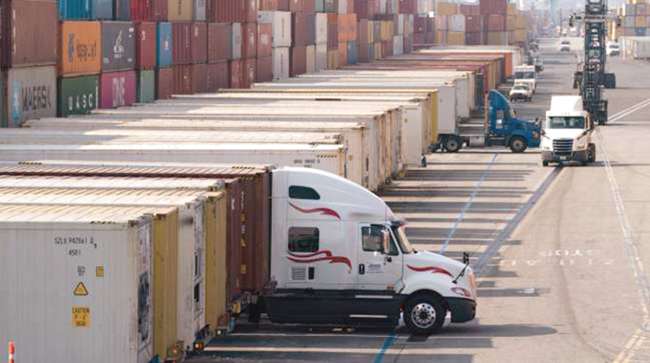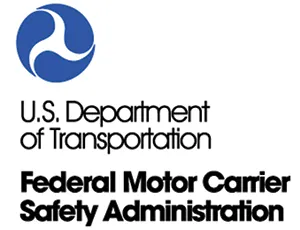Senior Reporter
FMCSA Planning New Study on Detention Time

[Stay on top of transportation news: Get TTNews in your inbox.]
Federal trucking regulators are planning an in-depth research study that will analyze data collected by approximately 80 carriers and 2,500 commercial motor vehicle drivers to help determine the frequency and severity of detention time drivers face when making deliveries.
Those drivers and carriers chosen for the study will collect and provide 12 months of data toward an end of helping provide strategies to mitigate driver detention time, according to the Federal Motor Carrier Safety Administration.
The study sample will include a variety of carrier operations, including longhaul/shorthaul, private/company fleets, for-hire fleets, port servicing (primarily chassis), owner-operators, hourly and mileage-based operators, truckload, less-than-truckload and dedicated local delivery.
“Detention time refers to the extra time truck drivers wait at shipping and receiving facilities due to delays not associated with the loading and unloading of cargo,” said a Feb. 16 FMCSA notice seeking public comment. “Drivers are often not paid for this extra time.”
Public comment on the new detention time study announcement must be received on or before March 18.

FMCSA said detention time in the trucking industry is a long-standing issue and consistently ranks as one of the top problems for a large portion of CMV operators.
“Reducing detention time may reduce costs for carriers, increase pay for drivers, and improve drivers’ ability to make deliveries on time or arrive at a destination as planned without violating hours-of-service requirements,” the agency said.
Drivers who experience less detention time may be more likely to drive safely to reach their destinations within hours-of-service limits and properly log their driving and duty time to make deliveries on time, according to FMCSA.
Officials said they have been studying detention time since 2014, but prior studies have been limited due to a small study sample of mostly larger carriers.
“Therefore, FMCSA needs additional data from a broader sample of carriers to understand the safety and operational impact of detention time, to better understand why detention time occurs, and to identify potential mitigation strategies the CMV industry may use to reduce detention time while improving operational efficiencies and safety,” FMCSA said.
Specifically, FMCSA said there are three primary objectives for the data collection in the new study: to assess the frequency and severity of driver detention time using data that represents the major segments of the motor carrier industry; assess the utility of existing innovative technology solutions to measure detention time; and prepare a final report that summarizes the findings, answers the research questions, and offers strategies to reduce detention time.
A total of 171 comments received on an August 2023 Register notice were varied, agency officials said.
COMTO's April Rai offers tips to increase workforce diversity and grow profits.. Tune in above or by going to RoadSigns.ttnews.com.
In comments, the Owner-Operator Independent Drivers Association cited a 2018 Department of Transportation Office of Inspector General report that estimated that a 15-minute increase in average dwell time — the total time spent by a truck at a facility — increases the average expected crash rate by 6.2%.
The IG study also estimated that detention time is associated with reductions in annual earnings of $1.1 billion to $1.3 billion to for-hire commercial motor vehicle drivers in the truckload sector and reduces net income by $250.6 million to $302.9 million annually for motor carriers in that sector, OOIDA said.
“After numerous studies that the FMCSA has had on detention time, there is always the question if the FMCSA will monitor detention time — and if so, how?” asked the Truckload Carriers Association.
TCA said that detention time within the trucking industry is a complex issue with various factors at play.
“The FMCSA would face significant challenges to effectively regulate detention time due to the numerous definitions and tracking methods employed by trucking companies,” TCA said.
American Trucking Associations said in comments that it had “reservations” about the suitability of resolving the detention time issue with a regulatory solution, as well as concerns about a misplaced focus on detention time as a potential second-order safety issue when the agency’s regulatory and enforcement efforts can and would be more productively focused on first-order safety-affecting behavior and technologies.
Want more news? Listen to today's daily briefing above or go here for more info
“In ATA’s view and in the experience of its members, detention time is an issue with serious implications for supply chain efficiency: because the immediate costs of detention time are borne chiefly by motor carriers and commercial drivers in the form of lost productivity. The shippers who are actually in a position to better manage the operations at their loading docks to reduce inefficiencies have little if any incentive to do so,” it said.
The federation continued, “ATA is concerned that small-carrier operations and owner-operators may not be sufficiently represented. ATA urges the agency to carefully consider whether the data it uses for the study sufficiently represents the range of shippers that the trucking industry serves.”





